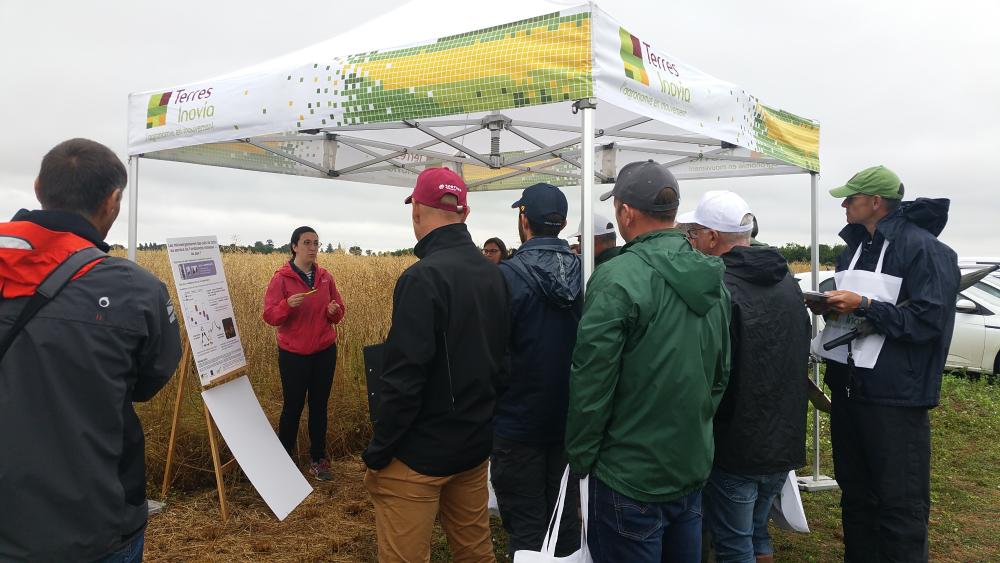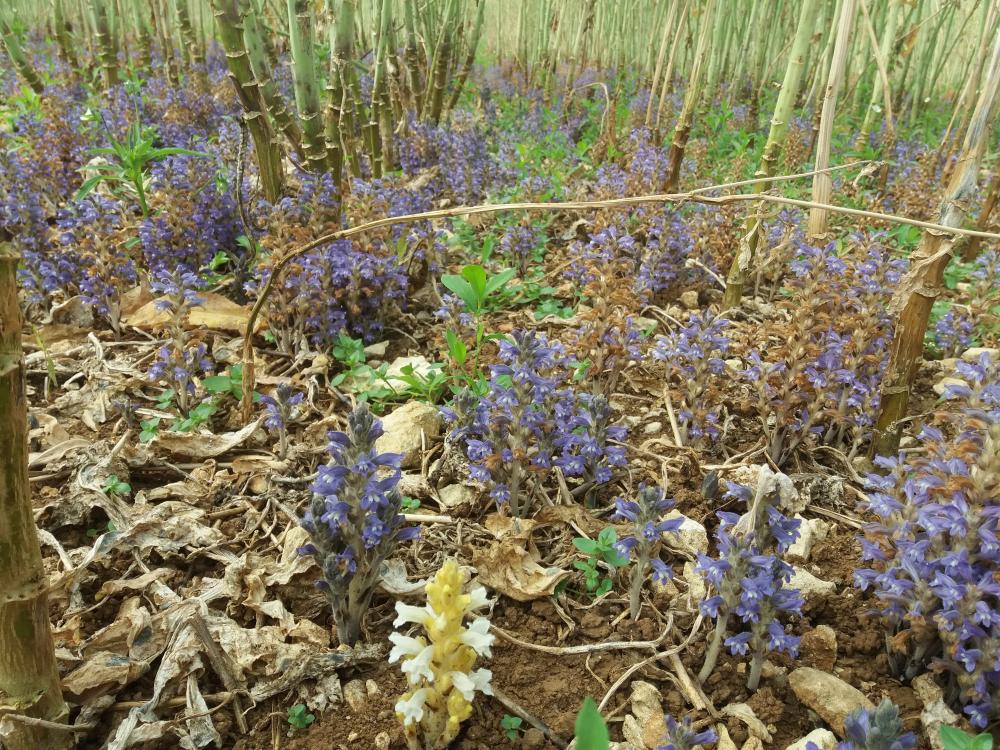Rootworm of oilseed rape: Terres Inovia invests in research
Rootworm of oilseed rape: Terres Inovia invests in research
For three years, a PhD student received funding from Nantes University and Terres Inovia to work on the role of soil microorganisms in the interaction between stalked broomrape and winter oilseed rape.

From the end of 2019 to the beginning of 2023, Lisa Martinez conducted her thesis on the topic of rapeseed broomrape under the supervision of Philippe Simier and Lucie Poulin (Nantes Université) and Christophe Jestin, research officer at Terres Inovia. The Institute co-financed the research alongside Nantes University.
During the 3 years of study, the PhD student highlighted the tripartite links between a cultivated plant, a parasitic plant and soil microorganisms under the following title: "Role of compatible and suppressive soil microorganisms in the parasitic interaction between stalked broomrape and winter rape".
She successfully defended her thesis on 23 March 2023, then presented the results of her research during a dedicated webinar at the beginning of June 2023, which were relayed in the press (in Cultivar and Phytoma in particular).
The rhizosphere, a place of exchange
In the west of France (Poitou-Charentes and Vendée), Phelipanche ramosa is regularly infesting new plots. This parasitic plant causes a reduction in the number of siliques.
The parasite germinates and attaches itself to the oilseed rape as a result of an exchange with the host plant's root system. Lisa Martinez's research focused on the role of soil micro-organisms in the communication between oilseed rape and stalked broomrape.
The soil microbial communities can be divided into two camps: on the one hand, those that promote or even amplify the dialogue with the broomrape in the rhizosphere; on the other hand, those that reduce the possibilities of fixation by the parasitic plant.

Prospects for combating broomrape
This work was based on an observation and a request from the field: why do broomrape necroses occur in certain plots and/or in certain years? Terres Inovia contacted the plant biology and pathology research laboratory (LBPV, Nantes University), which specialises in parasitic plants. Based on these exchanges, a partnership was formed and a thesis was started.
From a fundamental point of view, this work has improved our understanding of parasitic interaction in oilseed rape, but it has also provided additional explanations for the variations in infestation observed between plots and/or between years among farmers. In the medium to long term, this work opens up a number of avenues for applied research, for example in the use of fungal strains that are antagonistic to broomrape, in cultivation practices that favour native microbial communities capable of reducing the development of broomrape, or in the creation of microbial bioindicators that can predict the risk of parasitic infestation of a soil. All of this points to the possibility of a great deal of work to continue the fight against this parasitic plant.
Contact : Christophe Jestin, c.jestin@terresinovia.fr